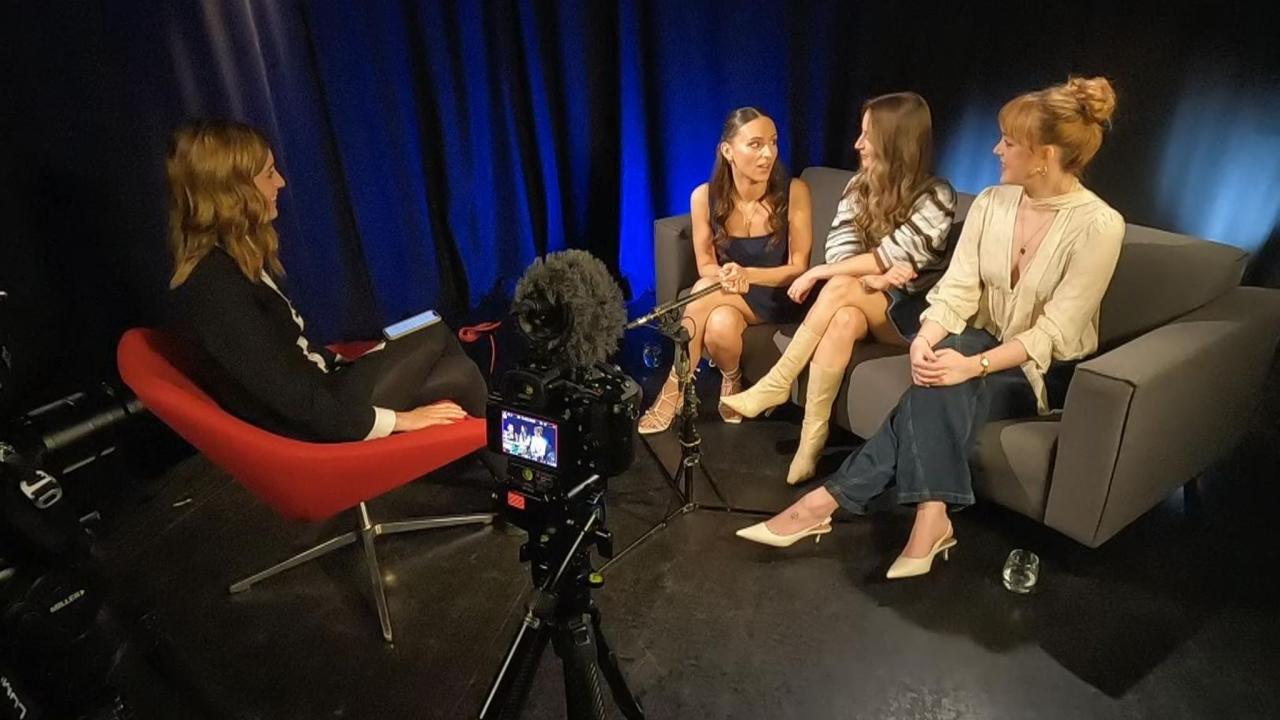BBC announces Eurovision 2025: When Graham Met Remember Monday sets the stage for this enthralling narrative, offering readers a glimpse into a story that is rich in detail and brimming with originality from the outset. The BBC’s longstanding relationship with the Eurovision Song Contest has not only shaped the event’s format over the years but has also significantly influenced its popularity in the UK. With the charismatic Graham Norton at the helm of commentary, audiences have been treated to a fresh and entertaining viewing experience that enhances the excitement surrounding the competition. Alongside this, the intriguing theme of ‘Remember Monday’ promises to weave compelling narratives that resonate with fans, making Eurovision 2025 an event to watch.
BBC’s Role in Eurovision: BBC Announces Eurovision 2025: When Graham Met Remember Monday
The British Broadcasting Corporation (BBC) has played a pivotal role in shaping the Eurovision Song Contest, contributing significantly to the event’s history and popularity in the UK. As one of the founding broadcasters, the BBC’s involvement has been instrumental in establishing Eurovision as a celebrated cultural phenomenon, with a legacy spanning over six decades.
The Eurovision Song Contest made its debut in 1956, initially featuring only seven countries. Over the years, the format has evolved dramatically, expanding to include a diverse array of musical styles and performances from numerous countries across Europe and beyond. The introduction of semifinals in 2004 allowed for greater inclusivity, enabling more nations to participate and increasing viewer engagement. The contest now showcases not only musical talent but also elaborate staging and performances, reflecting contemporary entertainment trends.
Historical Significance of the BBC in Eurovision
The BBC’s historical involvement in Eurovision has been marked by several key milestones that highlight its influence on the contest and its reception in the UK:
- The BBC was one of the original broadcasters at the inaugural contest in 1956, where it aired the event live, establishing a tradition that continues to this day.
- Through the years, the BBC has produced and broadcast numerous iconic performances, showcasing British talent such as Sandie Shaw, who won in 1967 with “Puppet on a String,” and more recently, artists like James Newman and Sam Ryder.
- The broadcaster’s commitment to high production values and engaging commentary has enhanced the overall viewing experience, making Eurovision a must-watch event in the UK.
- In 2016, the BBC celebrated 60 years of Eurovision by showcasing memorable performances and moments, reinforcing its connection to the contest.
The impact of the BBC’s broadcasting on Eurovision’s popularity in the UK cannot be overstated. The annual event captures the imagination of millions, serving not only as a music competition but also as a cultural gathering that unites audiences across generations. The BBC has adeptly used social media and digital platforms to engage audiences, ensuring that Eurovision remains relevant and exciting in the modern era.
The Eurovision Song Contest is more than just a competition; it is a celebration of music, culture, and unity across Europe, made possible through the unwavering support of broadcasters like the BBC.
Graham Norton’s Influence on Eurovision

Graham Norton has become a defining voice in the Eurovision Song Contest, particularly through his role as the commentator for the BBC. His unique blend of humor, insight, and charisma has significantly transformed the way audiences engage with the competition. With each broadcast, Norton not only provides commentary but also creates an atmosphere that resonates with both die-hard fans and newcomers alike, enhancing the overall viewing experience of this beloved event.
Norton’s contribution to Eurovision commentary has been widely acclaimed. He brings a modern sensibility to the broadcast, deftly balancing humor with genuine appreciation for the performances. His ability to connect with viewers through witty observations and relatable anecdotes has made him a favorite among audiences. This style contrasts sharply with previous commentators who often maintained a more traditional and formal tone. For many viewers, Norton’s light-hearted yet insightful commentary serves as an invitation to enjoy the spectacle without feeling overwhelmed by the competition’s complexities.
Comparative Analysis of Commentators’ Styles
The transition from earlier Eurovision commentators to Graham Norton is marked by a significant shift in tone and style. Previous commentators often prioritized a straightforward presentation of the event, focusing heavily on facts and performance details. In contrast, Norton’s approach infuses personality and humor, making the experience more relatable and engaging.
Key aspects that highlight Norton’s distinctive style include:
- Humor and Wit: Norton’s use of playful commentary brings a refreshing lightness to the broadcast, making even the more bizarre performances enjoyable.
- Audience Engagement: His conversational tone creates a sense of inclusivity, allowing viewers to feel like they are part of the discussion.
- Modern References: Norton often incorporates contemporary cultural references that resonate with a diverse audience, bridging generational gaps.
- Insightful Critique: While entertaining, he also provides insightful commentary on the music and performances, offering a deeper appreciation for the artists involved.
Graham Norton’s influence on Eurovision extends beyond mere commentary; he has become a cultural icon linked to the event, embodying the spirit of fun and celebration that Eurovision represents. His ability to blend entertainment with genuine appreciation for the artistry of the performances has undoubtedly shaped the viewing experience, ensuring that Eurovision remains a highlight on the television calendar.
The Significance of ‘Remember Monday’
‘Remember Monday’ is a standout entry that not only captures the audience with its infectious melody but also conveys profound themes relevant to today’s society. This song encapsulates the essence of memories and the significance of shared experiences, resonating deeply with Eurovision fans who cherish the emotional narratives often presented in the competition.
The song weaves together a tapestry of themes centered on nostalgia, community, and the passage of time. It invites listeners to reflect on the moments that shape our lives, emphasizing the importance of remembering those who have influenced us. The lyrics often hint at the bittersweet nature of memories, where joy and sorrow coexist, highlighting a universal truth that resonates across cultures. This duality is particularly relevant in the Eurovision context, where diverse narratives from different countries converge.
Cultural References and Their Relevance
‘Remember Monday’ is rich in cultural references that strike a chord with the Eurovision audience. These references not only enrich the song’s narrative but also enhance its relatability. Here are some notable elements:
- Shared Experiences: The song taps into the concept of collective memory, a theme prevalent in many cultures. This idea resonates with Eurovision’s spirit of unity and celebration of diversity.
- Historical Allusions: Subtle nods to historical events or cultural icons can be found within the lyrics. These references serve to connect the song with significant moments that have shaped national identities, enhancing its emotional weight.
- Visual Imagery: The lyrics evoke vivid imagery, allowing listeners to visualize scenes from their own lives. This connection to personal experiences makes the song more impactful, as it encourages fans to link their own memories to the performance.
‘Remember Monday’ fits seamlessly into the Eurovision narrative, embodying the themes of connection and storytelling that are integral to the competition. It serves as a reminder of the power of music to evoke emotions and foster a sense of belonging. As contestants share their stories through song, ‘Remember Monday’ exemplifies the capacity of music to transcend borders, inviting audiences from various backgrounds to unite in shared sentiments.
“The beauty of Eurovision lies in its ability to bring people together through the power of stories and memories.”
Anticipating Eurovision 2025

As we look forward to Eurovision 2025, excitement is building around the various elements that will shape this iconic music competition. With the event set to take place in a yet-to-be-announced host country, fans and artists alike are beginning to speculate on the timeline of events, potential contestants, and emerging trends that could define this year’s performance styles.
Anticipating Eurovision 2025 involves understanding not only the logistical aspects leading to the event but also the cultural context of music and performance that will paint the stage. Let’s break down the expected timeline of key events, delve into some of the artists likely to make waves, and highlight anticipated trends that could emerge in the competition.
Timeline of Events Leading Up to Eurovision 2025
The journey to Eurovision 2025 involves numerous checkpoints that build excitement and anticipation. Below is a timeline of significant events leading up to the grand event:
- 2024 – Fall: The host country announcement is made, generating discussions about the venue and local engagement.
- 2024 – Winter: National selection processes begin across participating countries, showcasing a mix of established stars and emerging talent.
- 2025 – January: Final selections are confirmed, and promotional activities ramp up with initial teasers and music releases from contestants.
- 2025 – March: Rehearsals commence, providing artists with the opportunity to refine their performances and stage presence ahead of the event.
- 2025 – May: The semi-finals take place, allowing various acts to compete for a spot in the grand final.
- 2025 – Early May: The grand final occurs, culminating in the announcement of the winner and celebrating the diversity of music from across Europe.
Potential Contestants and Their Anticipated Impact
As we forecast the contestants for Eurovision 2025, several artists are already gaining attention in the music scene. These candidates are expected to bring unique styles and perspectives that could significantly influence the competition’s dynamics.
- Rina Sawayama: With her genre-blending music and powerful stage presence, Rina could redefine expectations with an unforgettable performance.
- Sam Ryder: Following his successful run in Eurovision 2022, Sam’s return could inspire a wave of nostalgia while showcasing his evolving artistry.
- Netta Barzilai: Known for her innovative performances and eclectic sound, Netta could captivate audiences once again with her signature flair.
- Blanco: The rising Italian star is anticipated to bring a fresh perspective, resonating with younger audiences while bridging cultural divides.
Predictions for Trends in Music and Performance Styles, BBC announces Eurovision 2025: When Graham Met Remember Monday
Eurovision 2025 is likely to reflect evolving musical trends and performance styles that resonate with contemporary audiences. Here are some predictions based on current music trajectories:
- Increased Genre Fusion: Artists are expected to blend various genres, creating a rich tapestry of sounds that transcend traditional boundaries.
- Emphasis on Visual Storytelling: Performances will likely focus on elaborate visual narratives, leveraging technology to enhance emotional connections.
- Social and Political Themes: Given the current global climate, many entries may address pressing social issues, making a statement through their music.
- Collaboration with Influencers: We might see an influx of collaborations between established artists and social media influencers, leveraging their popularity to engage younger audiences.
“Eurovision is not just a song contest; it’s a celebration of culture, diversity, and musical innovation that resonates across borders.”
If you’re curious about your love life and finances today, check out the latest insights from Neti Sandu in the Horoscop 25 aprilie 2025. It highlights which zodiac signs are likely to find luck in both love and money, making it a must-read for anyone wanting to take advantage of today’s cosmic energy.
In a recent announcement, the celebrated poet Ana Blandiana revealed her stance on the upcoming presidential elections. Her statement about believing in a victory brings a refreshing perspective, which you can explore further in her interview: Ana Blandiana anunță cu cine va vota la prezidențiale: „O victorie în care mă încăpățânez să cred”. It’s inspiring to see influential figures engage in political discourse!